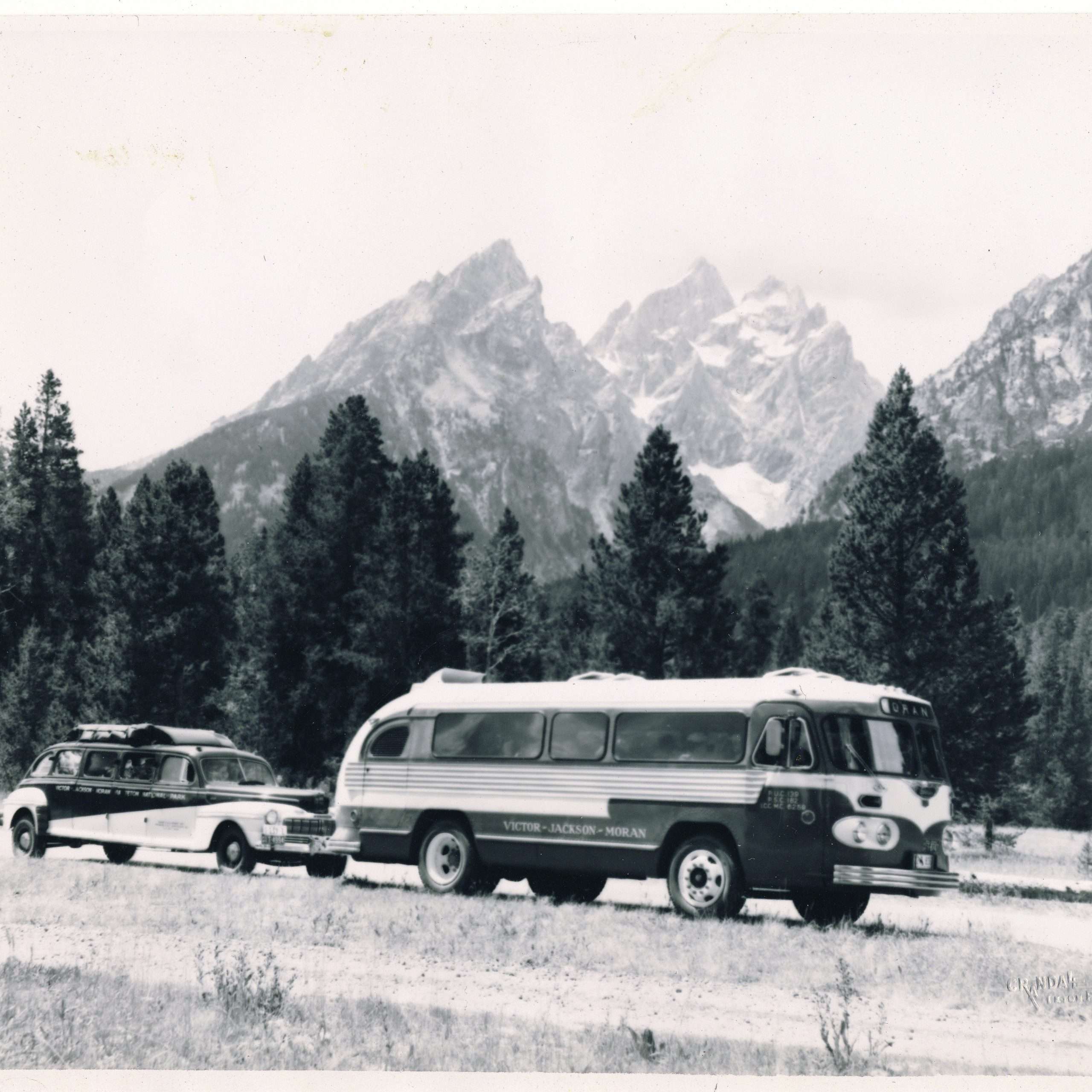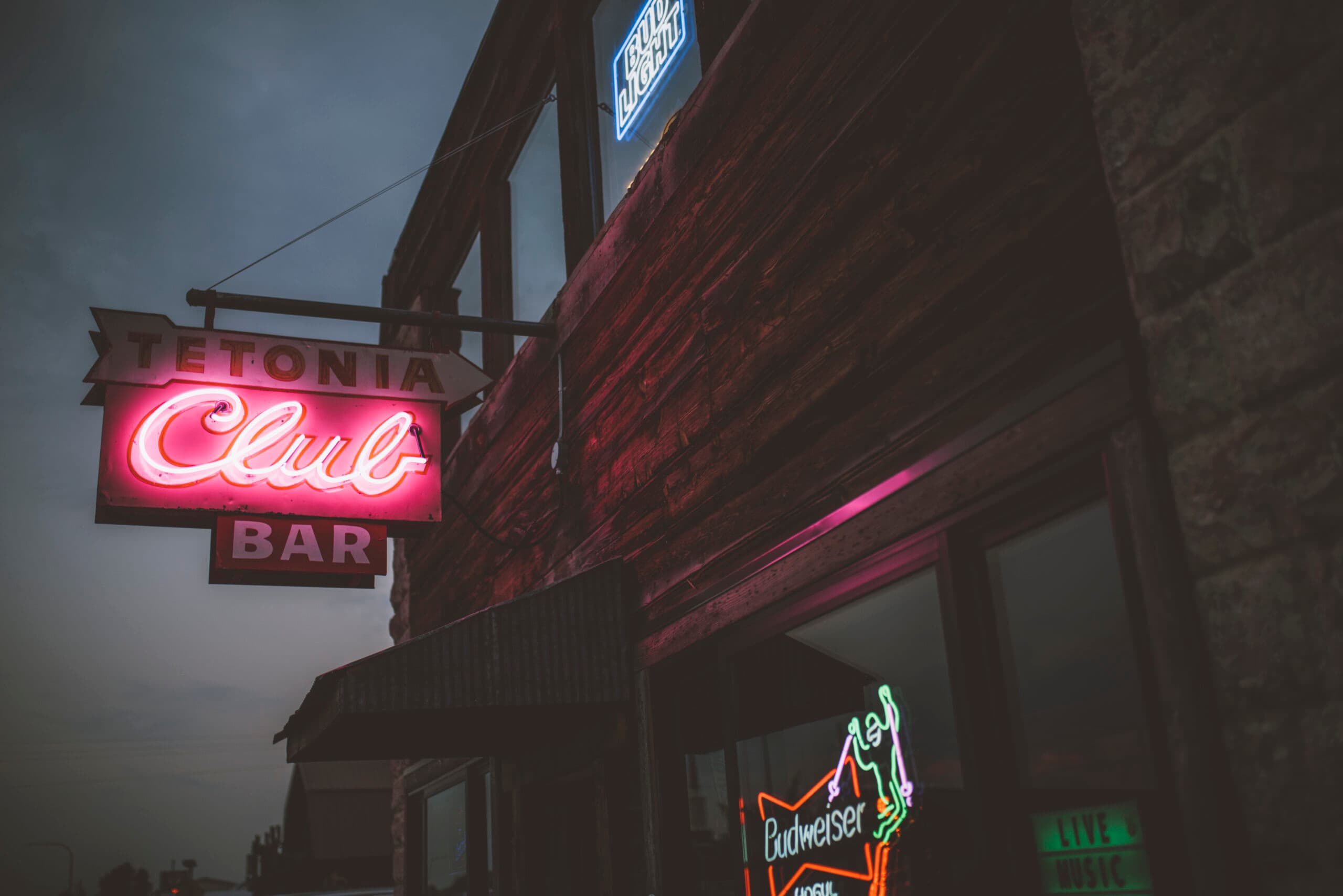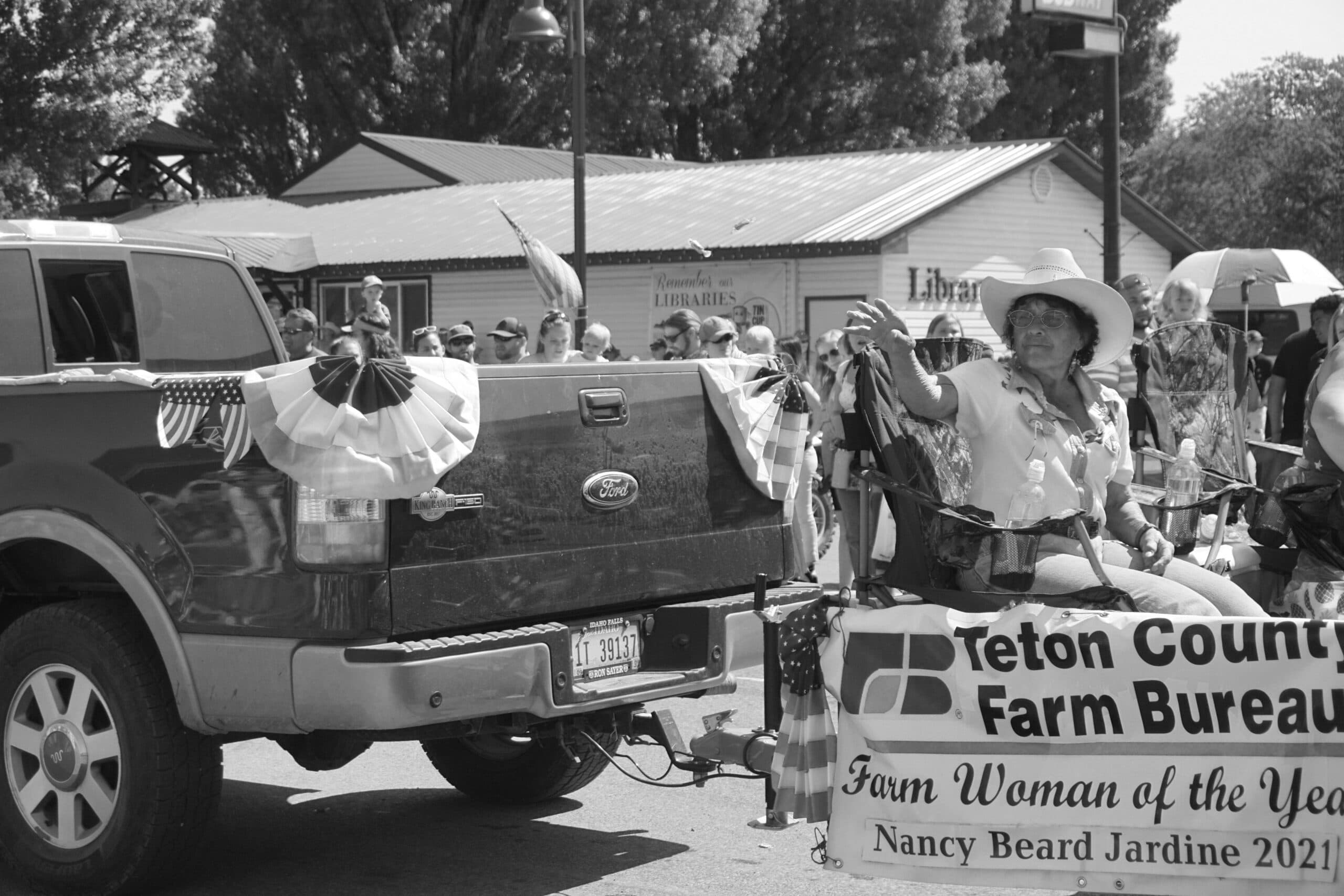Who Was Fred Mugler?

On a warm summer evening in downtown Driggs, a handful of people stroll through the curiously open lot sandwiched between the Colter and Fremont buildings on Main Street. A family laughs while playing chess with life-sized rooks, pawns, and bishops, and a couple relaxes at a picnic table.
An inconspicuous placard dubs the area “Mugler Plaza: Cultural Hub of the Universe.”
Developed and then dedicated in August 2018 by the nonprofit Downtown Driggs Association, this odd space was transformed from a weedy vacant lot into a memorial to Fred Mugler, the iconic businessman and all-around Teton Valley character who lived and worked on this site from 1971 until 2003. Long-time locals will remember Fred, but newer residents may require an introduction to the life of this colorful, beloved man and his timeless contributions to Teton Valley.
One of the original “move-ins,” Fred relocated to the valley from Austerlitz, New York, at the forefront of a burgeoning wave of outdoor enthusiasts who headed here in the 1970s and ’80s. Though he’d been educated as a civil engineer and had worked in the field for some years, Fred took a position with an outdoor equipment store in his home state to learn the retail business. Upon arriving in the valley, Fred purchased a building on the west side of Main Street and in 1971 opened his soon-to-be legendary enterprise, Mountaineering Outfitters.
To anyone who frequented his store, as I did in the 1980s, both Fred and the space were more than memorable. A mash-up of Army-Navy surplus store and Patagonia outlet, the enterprise was an overwhelming floor-to-ceiling clutter of clothing and gear, both hanging up and tossed into giant cardboard boxes. Its inventory included anything you’d need or want for outdoor recreation. A classic roll-top desk housed all of Fred’s paperwork next to the cash register. Fred’s white head of hair and beard poked up above the chaos as he directed you to your desired item. While customers might have weaved through the narrow aisles searching and searching, it’s said that Fred knew exactly where everything was. He knew the place as if he lived there, which he did. Grandfathered in before most codes or required permits, he resided in an apartment he built onto the rear of the store.
To the general public, Fred was legendary for his Christmas eggnog parties. According to Lynda Olesen, Fred’s employee and store manager for fifteen years, the event was held annually on Christmas Eve. Fred spent the morning concocting his notorious eggnog—a large pot of his spiked recipe for adults and a smaller, alcohol-free pot for kids. Served in two-ounce paper cups, “it took all the enamel off my teeth,” Lynda claims. Clever Fred knew a little of his high-test eggnog would loosen the purse strings of many last-minute shoppers. His strategy worked, and as the valley youth came of driving age, some were recruited each year to drive their parents home from an afternoon of Christmas shopping at Fred’s Mountaineering Outfitters.
Lesser known were Fred’s invitational “SCUM” parties. Held on the Saturday closest to the full moon in August, Lynda says this event was dedicated to those who weren’t invited to the fancier valley “soirées,” as Fred called them. Held on ten acres he’d purchased from mountaineering icon Paul Petzoldt on Valley View Drive, Fred cooked up Dutch oven meals on an open fire, while guests brought sides and desserts to set up on plywood tables. Booze of all varieties was abundant. After dark, Fred set up a long line of fireworks and lit them with his blow torch.
A licensed pilot, Fred loved flying, generously inviting friends to accompany him in his four-seater Cessna 182, housed in Hangar 4 built by Fred at Driggs-Reed Memorial Airport. While he frequently flew back East, his favorite excursion was to fly his friends to regional airports with good restaurants, like Chico Hot Springs in Montana. As Lynda tells it, he would call ahead to advise the staff of his arrival and management would barricade the access road so he could land, making him an instant celebrity.
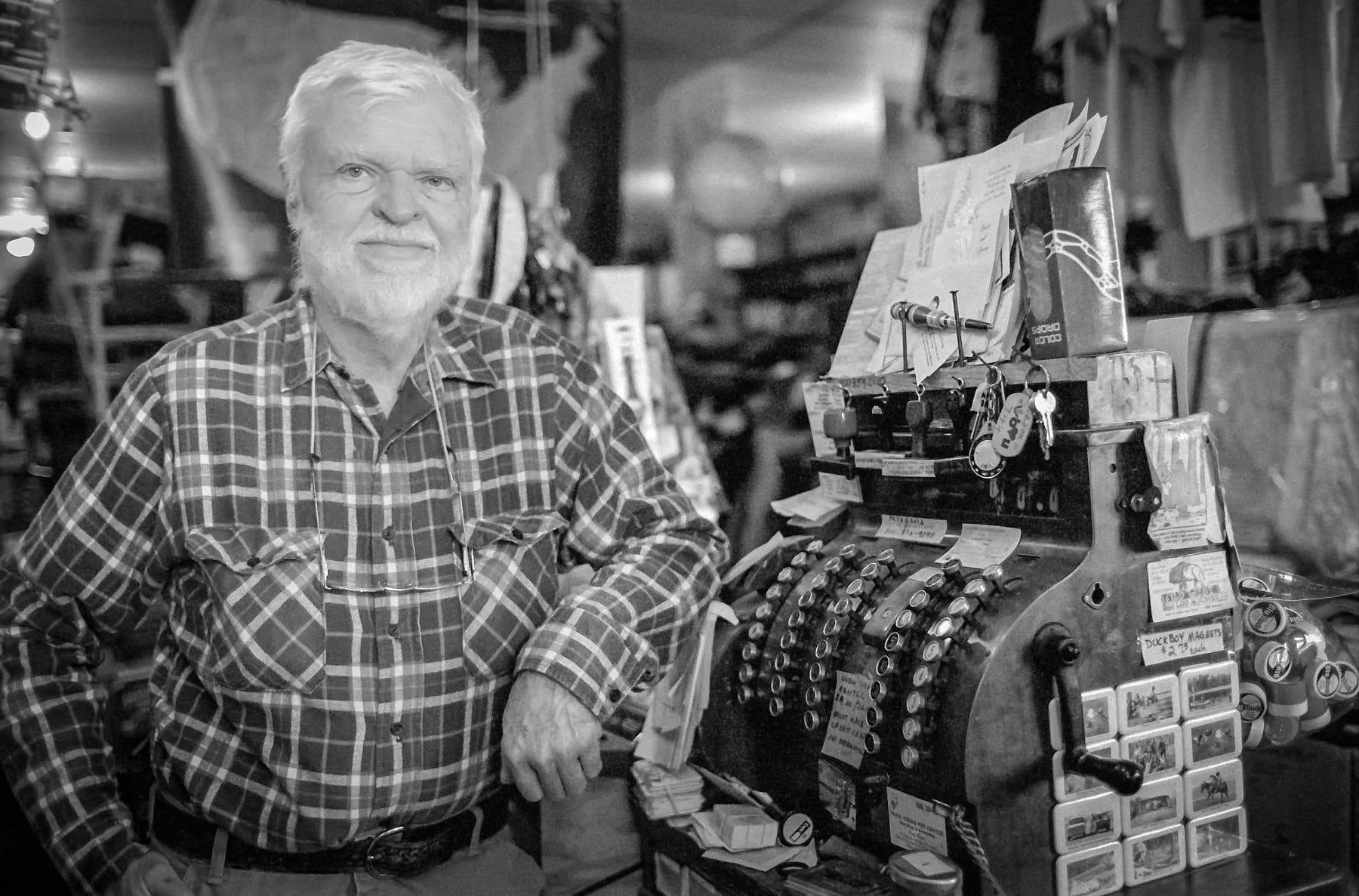
J. Patrick Phelan
J. Patrick Phelan



But his home and business were his world. Fred was a familiar sight each day on Main Street, walking with his border collie, Felicia, to the post office and back. Working with Fred full-time, six days a week, Lynda observed his character and mannerisms at close range. On returning from the post office, Fred labeled each bill with the date to mail and then arranged them chronologically in a stack on the rolltop desk. He set aside The Wall Street Journal and numerous catalogs to peruse later.
When he traveled, he’d call Lynda every night to check on finances and correspondence. With his home-built kit weather station on site, Fred graphed daily highs, lows, wind speed, and precipitation, and reported this data to area television stations who called daily. Busy as he was, he cherished routine. He’d get cheeseburger chowder every Wednesday for lunch from the bakery next door.
While Fred was a frugal businessman, he was a generous boss. As Lynda remembers, he insisted she reuse small pieces of tape, plus other odds and ends. “But he always had a thermos of hot coffee waiting to share when I got to work,” she recalls. In what he termed “profit-sharing,” he sometimes left a $100 bill for her on the rolltop. One Christmas, from the pile of catalogs he collected, he sent her a necklace from Tiffany’s, the famous New York City jewelry store.
An enduring example of Fred’s humor are the well-known “Cultural Hub” T-shirts. The first, and more rare, edition from the 1980s featured art by Sue Tyler with the motto, “Driggs Idaho, Cultural Hub of the Rockies.” The classic version from the 1990s declares, “Driggs Idaho, Cultural Hub of the Universe.” Its graphic was a drawing by a friend of Fred’s, crafted from an aerial photo of the town. (This shirt is still available; see postscript for ordering info.)
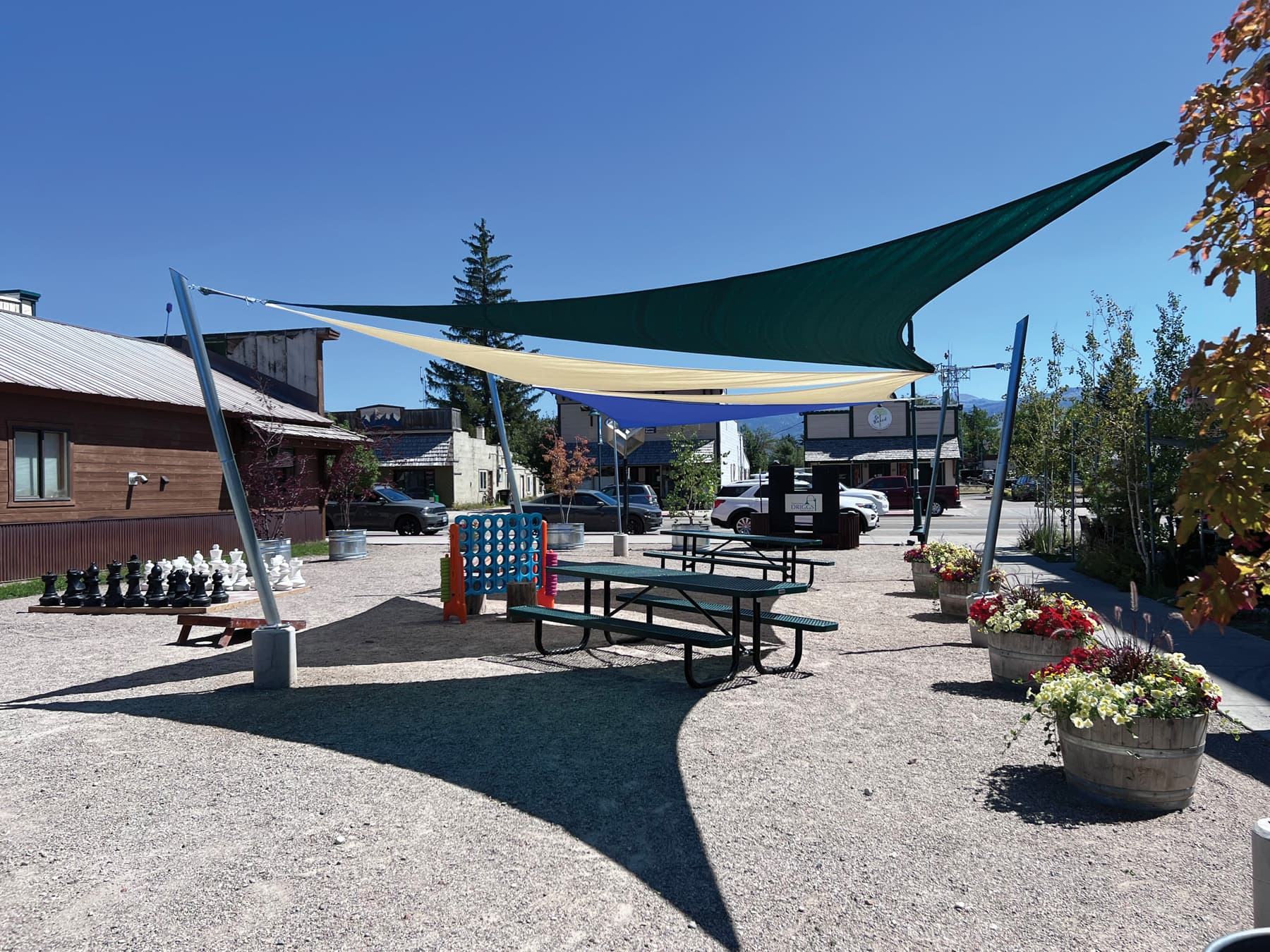

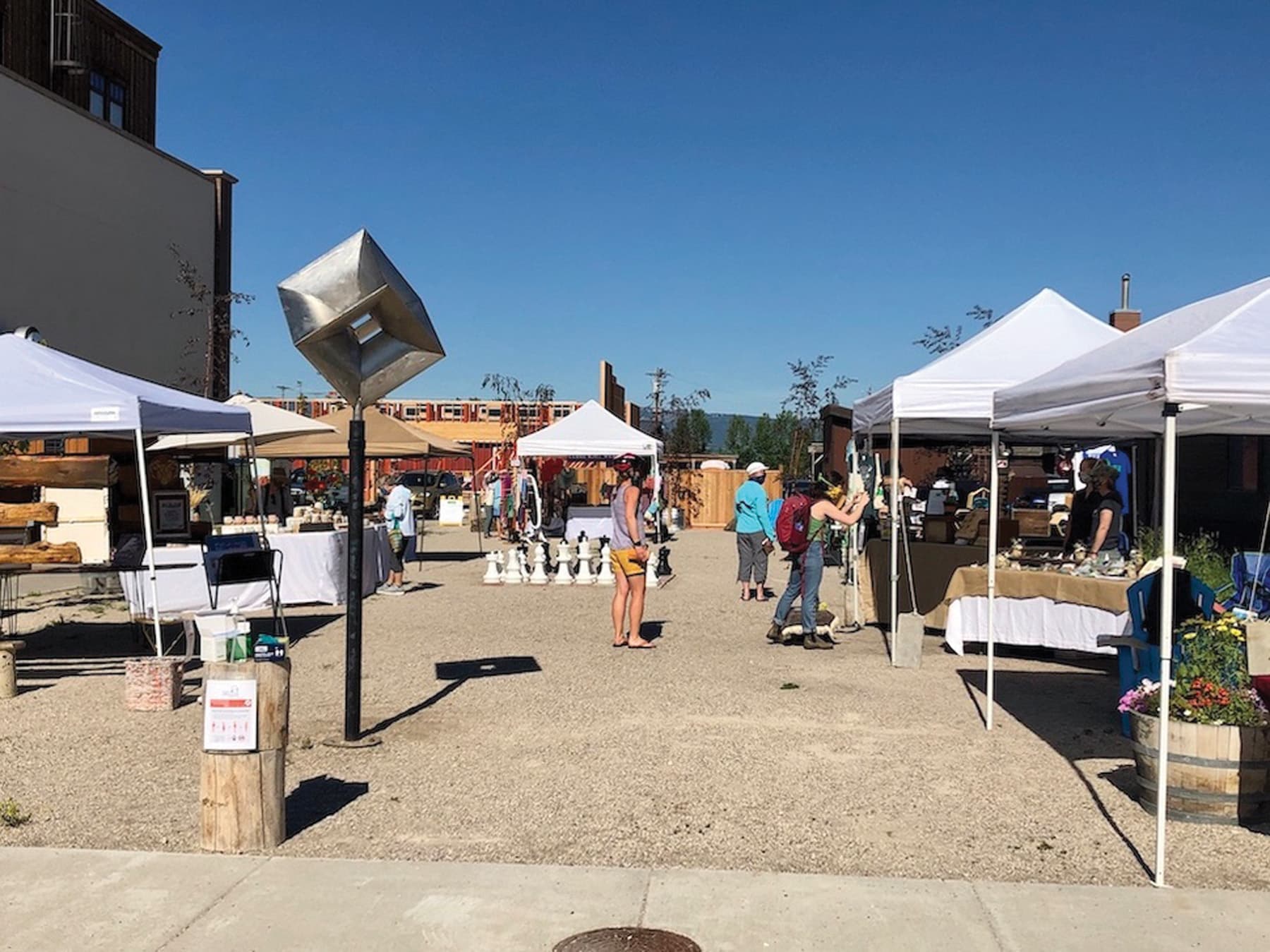

In fact, Fred’s store itself was a hub, with a steady stream of customers flowing in and out of the shop on any given day. Valley children were raised coming into Fred’s. Wealthy tourists wandered the aisles, marveling at the quaint spot with the phenomenal inventory. As his business gained regional notoriety, Fred was even featured in the 1990 Patagonia catalog.
When day dawned on the morning of February 10, 2003, Teton Valley reacted with shock and despair to see that Fred’s entire building had been devastated by fire. The remains of his body were found in his apartment in the recliner next to an unattended pot on the stove. Piecing together events leading to the tragedy, the fire marshal and coroner concluded Fred had been incapacitated by a medical emergency as dinner cooked. His dog Felicia died next to him.
In his death at age 67, Fred was as generous as he had been in his life. “Fred cared deeply about the development of this valley,” Lynda says. After working with Michael Whitfield, then of Teton Valley Regional Land Trust, Fred donated a substantial portion of his estate to the organization in his will. Part of the Land Trust’s Woods Creek Fen is designated “The Fred Mugler Outdoor Classroom.” He also remembered Lynda, his long-time friend and employee, with an inheritance.
The demise of Fred and Mountaineering Outfitters left a literal hole in the heart of downtown Driggs. But Mugler Plaza, on the very spot where Fred lived and worked, is a wry and fitting reminder of the man who lives on in the memories of so many.
View a sample of the “Cultural Hub of the Universe” T-shirt, with contact info for ordering, at Barrels and Bins Natural Market.


